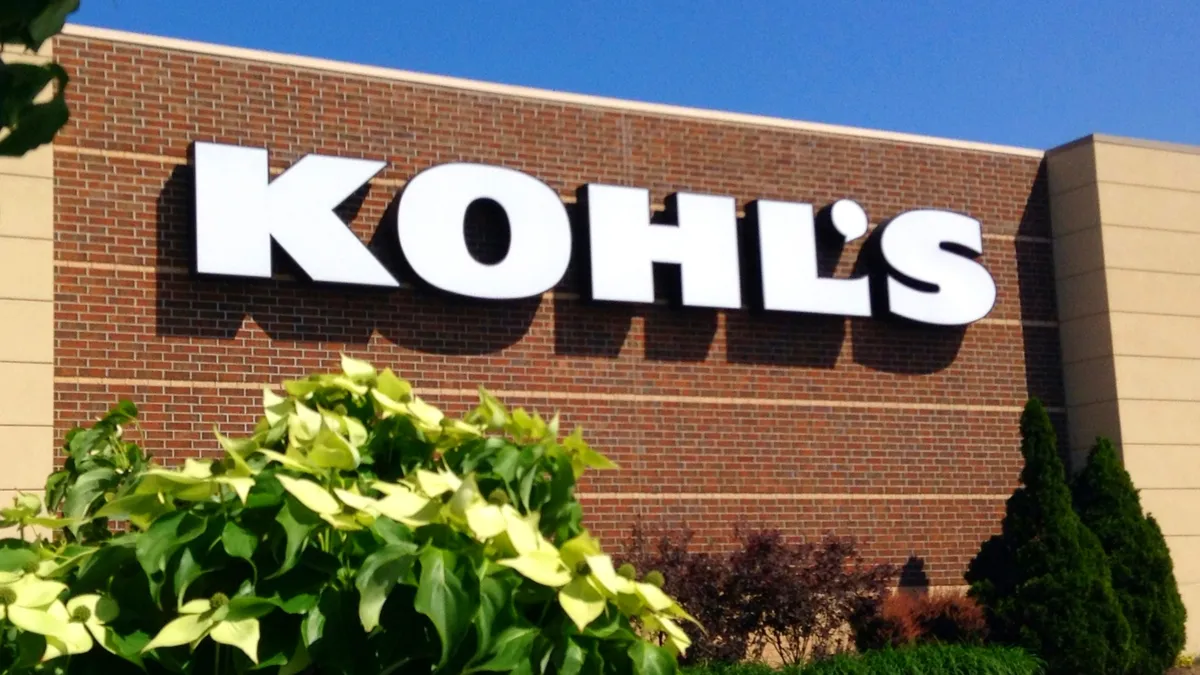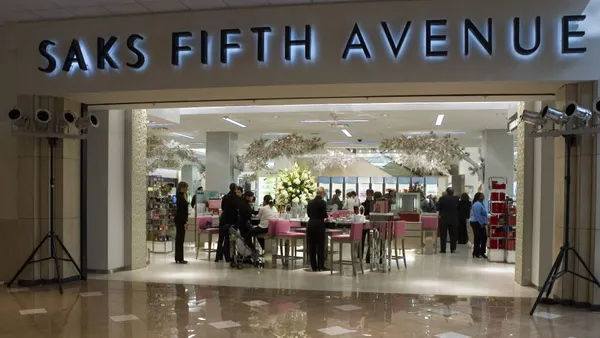Dive Brief:
-
Kohl’s Q3 net sales fell 8.7% year over year to $3.5 billion, with comps down 9.3%, according to financial filings Tuesday. On Monday the department store announced that it had named Michaels CEO Ashley Buchanan to replace Tom Kingsbury as CEO, effective Jan. 15.
-
Gross margin in Q3 expanded 20 basis points to 39.1%. Inventory was down 3%. Operating income fell 2.7% or 120 basis points to $98 million, while net income plunged by 62.7% to $22 million.
-
The retailer lowered its guidance for the second time this year. From its initial estimate of a 2% to 4% net sales decline and an August estimate for a 4% to 6% decline, Kohl’s now expects full-year net sales to fall 7% to 8%. Comps are forecast to fall 6% to 7%, compared to the August estimate for a 3% to 5% decline.
Dive Insight:
Customers are hearing from Kohl’s as the retailer works to coax them back into its stores after a series of missteps helped drive some away.
Transactions fell about 3% in Q3, after a 2% increase in Q2, which led directly to a quarter-over-quarter comp decline, Kingsbury told analysts Tuesday morning. August was particularly weak, though back-to-school sales, especially children’s apparel, were soft in general.
“We are highly focused on driving traffic in response to the softer trends experienced in Q3,” he said. “We are increasing our touchpoints with our most engaged customers through more targeted offers and direct mail.”
Kohl’s is also reversing course in a few areas. After dismantling its fine jewelry displays to make space for its Sephora partnership, for example, the department store is returning them to 200 stores, along with an expanded in-aisle placement of bridge jewelry in all stores for the holidays. In addition, in its zeal to reduce inventory that had grown out of control in 2022, the retailer pared down its petite offer, a move Kingsbury called “a short sighted decision that we are committed to resolving.”
And finally, the company’s move late last year to emphasize brand names over private labels also seems to have backfired. In the last 18 months, with inventory under strict control, investments in Sephora, name brands, home decor, and gifting and impulse buys displaced receipts of Kohl’s private apparel brands, Kingsbury said. Inventory of private apparel brands in transit is now up 40% and “hitting the selling floor in time for holiday,” he said.
“We simply did not have enough private brands inventory given our investments in market brands and our key growth categories,” he also said. “I want to be clear, though: We continue to believe our market-brand strategy and investments into the key growth categories are the right long term strategic moves. We simply must do a better job of balancing these initiatives while managing the core business.”
This job — and Kohl’s turnaround more broadly —will soon fall to Buchanan, and it will be a difficult one, according to Emarketer analyst Rachel Wolff. With consumers still focused on value, Kohl’s is facing stiff competition from off-price, online and big-box retailers, Wolff said in emailed comments Tuesday.
"Kohl’s poor quarter and forecast downgrade is a worrying sign for the retailer’s holiday prospects,” Wolff said. “While it is trying to revitalize its business by revamping its inventory mix to focus on categories like beauty and gifts, and by partnering with bigger names like Sephora and Amazon to get shoppers through the door, those efforts are falling flat in a highly competitive retail environment.”
Kingsbury on Tuesday described a retreat in some turnaround tactics, but Fitch Ratings Senior Director David Silverman said that analysts there are looking for a change in strategy to reignite sales, especially in women’s apparel, which is “key to longer term success for Kohl’s.”
“We will be looking for strategic shifts from incoming CEO Ashley Buchanan to assess the company’s potential operating trajectory from here,” Silverman said in emailed comments.
















